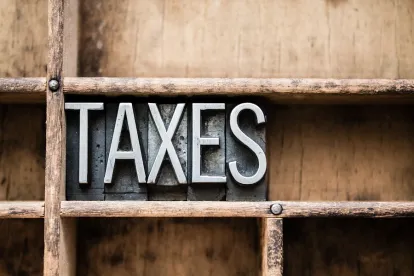On June 2, 2016, the US Tax Court issued a unanimous court-reviewed opinion in Guralnik v. Commissioner, 146 T.C. No. 15 (available here), addressing several points related to the timely filing of court documents. The opinion provides important reminders to taxpayers to ensure that they meeting filing deadlines.
Most of us are aware of the timely-mailed-timely-filed “mailbox rule” contained within the Internal Revenue Code (IRC). Most of us are probably also aware that a document mailed with a private delivery service may also qualify for the rule. However, there are important details to the rules governing private delivery services, the failure to adhere to which can lead to disaster – for example, the failure to timely file the petition and the loss of subject matter jurisdiction for the Tax Court. Also complicating matters, many states do not conform to the federal rules, so taxpayers must carefully review and adhere to the filing rules in each state where they have state tax filing obligations. We previously addressed these rules here.
In Guralnik, the taxpayer received a Notice of Determination Concerning Collection Action(s) Under Section 6320 and/or 6330. This type of notice requires that a petition to the Tax Court be filed within the 30-day period beginning the day after the date on the notice. The taxpayer’s petition to the Tax Court was due by February 17, 2015. The taxpayer sent his petition to the court via Federal Express First Overnight service in an envelope showing a ship date of February 13, 2015. However, due to a “snow emergency” attributable to Winter Storm “Octavia,” all government offices in the District of Columbia were closed on February 17, 2015, and Federal Express was unable to deliver the petition to the court until the next day, February 18, 2015. The Internal Revenue Service (IRS) moved to dismiss the case for lack of jurisdiction on the ground that the petition was not filed timely.
At the time the petition was sent, Federal Express’s First Overnight service was not designated by the IRS as satisfying the mailbox rule in IRC Section 7502. It was however, added to the list approximately three months later. Therefore, the taxpayer failed to meet the strict requirements for timely mailing, and thus timely filing his petition. To overcome this failure, the taxpayer made arguments as to why the petition should nevertheless have been treated as timely filed.
The Tax Court, recognizing the unique circumstances presented, and the fact that its rules do not address timely delivery when its clerk’s office is inaccessible because of an emergency, exercised its authority and discretion to craft a remedy for the situation. The court held that because the petition was received on the first accessible day after the court reopened for business following an emergency, the petition was timely filed and the court had jurisdiction.
Although it is unlikely that the situation in Guralnik will occur again in the future, the Tax Court’s analysis may have a wider implications. For example, one of the arguments advanced by the taxpayer was that IRC Section 6330(d) is a nonjurisdictional statute of limitations that is subject to equitable tolling. This argument was based on a line of US Supreme Court cases (outside the tax area) holding that, in suits against the United States, filing periods in the nature of claim-processing rules are not necessarily jurisdictional and are subject to a rebuttable presumption of equitable tolling. The Tax Court rejected this argument, holding that the filing period is, in fact, jurisdictional and cannot be extended by equitable tolling. We understand that there are other cases in the courts with this same issue, and it remains to be seen whether other courts will disagree with the Tax Court’s analysis and apply equitable tolling to petitions filed with the Tax Court.




 />i
/>i

